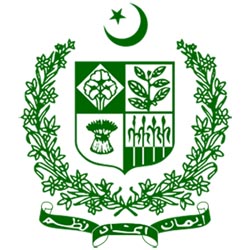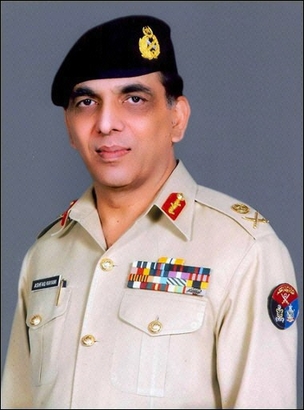Mad that parts of the very institution that created it had now turned against the Taliban, Islamist suicide bombers on Friday completely destroyed the headquarters of the powerful Inter-Services Intelligence in Peshawar that was once the laboratory of jihad run by Pakistan army officers.
Taliban terrorists blew up an explosives-laden truck outside the three-story building on Khyber Road that leads to the gateway to Afghanistan and central Asia through which the ISI pushed in combatants, weapons and explosives for years to help its erstwhile ally, the Afghan Taliban to capture Kabul finally in 1996.
The dawn attack at 6.40am, the 19th in Peshawar in five months, razed the building to rubble. It was not clear how many security personnel were inside the building when the bomber struck on the road leading to the Khyber Pass just before the city's rush-hour.
``It was a suicide bombing outside the intelligence office building. Five security personnel have been martyred,'' Pakistan's chief military spokesman Major General Athar Abbas told reporters. Other officials said the toll was nine.
``First there was firing, then a huge blast. Then everything was turned into dust and thick smoke,'' said Haroon Jan, an eyewitness who was brought into the Lady Reading hospital with a broken shoulder and head injuries.
The lawless frontier town of Peshawar, criss-crossed by Great Game deal-makers, militias and armies as political histories on both sides of the Khyber changed, has borne the brunt of the Taliban reprisals. Suicide attacks have bloodied the town's marketplaces and streets daily as Pakistan's army, eager to be seen to be acting against the globally-despised Taliban, mounted offensives against South Waziristan tribespeople.
Several big tribes, such as the Mehsud, form the backbone of the Tehrik-e-Taliban and have been suppliers of warriors and weapons traditionally for the mujahideen and later for Osama bin Laden's Al-Qaida and several anti-India groups which operated openly with military support in Pakistan-occupied Kashmir. Most of these operations, even after Washington turned on the heat following 9/11, were supervised by Pakistani officers posted at the Peshawar ISI regional HQ on Khyber Road.
The last time an ISI building was targeted was in May, when 24 people were killed in a suicide attack in Lahore. Minutes after Friday's attack, soldiers sealed off the area around the ISI headquarters but another suicide attack on a police station in Peshawar killed six other people and wounded 40. Scared residents whispered that more attacks were imminent since a fresh batch of suicide bombers had entered the town.
Minutes after Friday's attack, soldiers sealed off the area around the ISI headquarters but another suicide attack on a police station in Peshawar killed six other people and wounded 40. Scared residents whispered that more attacks were imminent since a fresh batch of suicide bombers had entered the town.
Khyber Road was shut to all traffic and security beefed up at residences and offices of the provincial chief minister, NWFP governor, the army corps commander and the American consulate, all located few hundred meters from the blast sight. Schools, which had barely opened after a two-week closure because of security threats, were ordered shut again on Friday.
The attack came on a day that Gen James L Jones, president Barack Obama's national security adviser, began a two-day trip to Pakistan and met with army chief Gen Ashfaq Parvez Kayani. Washington has goaded a reluctant Pakistan army into taking the war against terror seriously. That's led to the daily reprisals on both military and civilian targets.
Taliban terrorists blew up an explosives-laden truck outside the three-story building on Khyber Road that leads to the gateway to Afghanistan and central Asia through which the ISI pushed in combatants, weapons and explosives for years to help its erstwhile ally, the Afghan Taliban to capture Kabul finally in 1996.
The dawn attack at 6.40am, the 19th in Peshawar in five months, razed the building to rubble. It was not clear how many security personnel were inside the building when the bomber struck on the road leading to the Khyber Pass just before the city's rush-hour.
``It was a suicide bombing outside the intelligence office building. Five security personnel have been martyred,'' Pakistan's chief military spokesman Major General Athar Abbas told reporters. Other officials said the toll was nine.
``First there was firing, then a huge blast. Then everything was turned into dust and thick smoke,'' said Haroon Jan, an eyewitness who was brought into the Lady Reading hospital with a broken shoulder and head injuries.
The lawless frontier town of Peshawar, criss-crossed by Great Game deal-makers, militias and armies as political histories on both sides of the Khyber changed, has borne the brunt of the Taliban reprisals. Suicide attacks have bloodied the town's marketplaces and streets daily as Pakistan's army, eager to be seen to be acting against the globally-despised Taliban, mounted offensives against South Waziristan tribespeople.
Several big tribes, such as the Mehsud, form the backbone of the Tehrik-e-Taliban and have been suppliers of warriors and weapons traditionally for the mujahideen and later for Osama bin Laden's Al-Qaida and several anti-India groups which operated openly with military support in Pakistan-occupied Kashmir. Most of these operations, even after Washington turned on the heat following 9/11, were supervised by Pakistani officers posted at the Peshawar ISI regional HQ on Khyber Road.
The last time an ISI building was targeted was in May, when 24 people were killed in a suicide attack in Lahore.
 Minutes after Friday's attack, soldiers sealed off the area around the ISI headquarters but another suicide attack on a police station in Peshawar killed six other people and wounded 40. Scared residents whispered that more attacks were imminent since a fresh batch of suicide bombers had entered the town.
Minutes after Friday's attack, soldiers sealed off the area around the ISI headquarters but another suicide attack on a police station in Peshawar killed six other people and wounded 40. Scared residents whispered that more attacks were imminent since a fresh batch of suicide bombers had entered the town.Khyber Road was shut to all traffic and security beefed up at residences and offices of the provincial chief minister, NWFP governor, the army corps commander and the American consulate, all located few hundred meters from the blast sight. Schools, which had barely opened after a two-week closure because of security threats, were ordered shut again on Friday.
The attack came on a day that Gen James L Jones, president Barack Obama's national security adviser, began a two-day trip to Pakistan and met with army chief Gen Ashfaq Parvez Kayani. Washington has goaded a reluctant Pakistan army into taking the war against terror seriously. That's led to the daily reprisals on both military and civilian targets.




0 comments:
Post a Comment